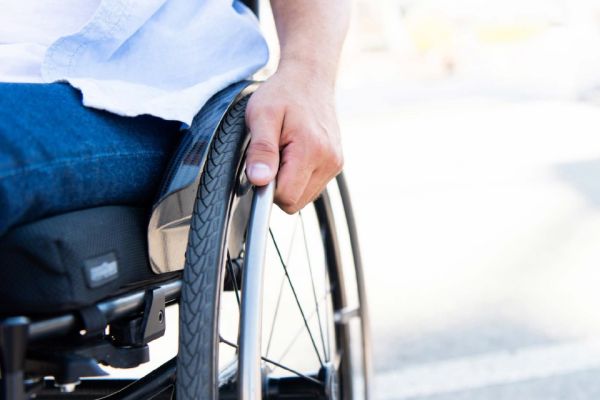Taking Stock in Laughter
Author: Allan McCarthy

People laugh at the darndest things. And in the darndest places. Have you ever been within earshot of laughter in a hospital waiting room, a church sanctuary, or maybe worse yet – a funeral home? Awkward.
These are not funny places, but people will laugh in serious situations or even at times when they’re down in the dumps. Amazingly, many of us do.
We laugh when we really need it most if we let the body do what comes naturally. Laughing to lift gloom is like screwing up your face to take medicine and finding out that it actually tastes good. “Laughter through tears,” has been called the perfect emotion. A society becoming more depressed needs a natural, effective solution to combat woes and laughter can be that solution.
Unfortunately, most people tend to stop laughing when they feel the blues, and when really down, they stop doing anything emotional at all. They don’t laugh; they don’t cry; they don’t get angry. They are totally and miserably numb.
Human beings need to feel our feelings, and when we don’t for any length of time, we become miserable. And while laughter is valued as a good thing, it is unfortunately undervalued and underestimated as a natural way of taking care of ourselves.
But within the last decade or so, patients, doctors and healthcare professionals are all finding that laughter may indeed be the best medicine. The medical community is acknowledging that maybe Mother Nature did not provide us with laughter just for grins. She gave us laughter to heal our bodies and our emotions so we can cope with life as we experience it.
The Best Medicine
Laughter may indeed be the best medicine. Finding humour in a situation and laughing freely with others can be a powerful antidote to stress. It is also a very good coping mechanism when you are suffering.
Many people find that maintaining a sense of humour is useful for better quality of life. Our sense of humour gives us the ability to find delight, experience joy, and to release tension. This can be an effective self-care tool.
For many years, medical professionals have recognized that those patients who maintained a positive attitude and shared laughter responded better to treatment. Laughing is known to help our respiration, circulation and digestion, lower blood pressure, reduce stress hormones, increase muscle flexion, and boost immune function by raising levels of infection-fighting T-cells, disease-fighting proteins called Gamma-interferon and B-cells, which produce disease-destroying antibodies.
We laugh when we really need it most if we let the body do what comes naturally. Laughing to lift gloom is like screwing up your face to take medicine and finding out that it actually tastes good. “Laughter through tears,” has been called the perfect emotion. A society becoming more depressed needs a natural, effective solution to combat woes and laughter can be that solution.
Unfortunately, most people tend to stop laughing when they feel the blues, and when really down, they stop doing anything emotional at all. They don’t laugh; they don’t cry; they don’t get angry. They are totally and miserably numb.
Human beings need to feel our feelings, and when we don’t for any length of time, we become miserable. And while laughter is valued as a good thing, it is unfortunately undervalued and underestimated as a natural way of taking care of ourselves.
But within the last decade or so, patients, doctors and healthcare professionals are all finding that laughter may indeed be the best medicine. The medical community is acknowledging that maybe Mother Nature did not provide us with laughter just for grins. She gave us laughter to heal our bodies and our emotions so we can cope with life as we experience it.
The Best Medicine
Laughter may indeed be the best medicine. Finding humour in a situation and laughing freely with others can be a powerful antidote to stress. It is also a very good coping mechanism when you are suffering.
Many people find that maintaining a sense of humour is useful for better quality of life. Our sense of humour gives us the ability to find delight, experience joy, and to release tension. This can be an effective self-care tool.
For many years, medical professionals have recognized that those patients who maintained a positive attitude and shared laughter responded better to treatment. Laughing is known to help our respiration, circulation and digestion, lower blood pressure, reduce stress hormones, increase muscle flexion, and boost immune function by raising levels of infection-fighting T-cells, disease-fighting proteins called Gamma-interferon and B-cells, which produce disease-destroying antibodies.
"Laughter also triggers the release of endorphins, the body’s natural painkillers, and produces a general sense of well-being."

“If you took what we now know about the capability of laughter to manipulate the immune system, and bottled it, it would need FDA approval,” says Dr. Lee Berk, a preventive care clinician, medical research scientist, psychoneuroimmunologist (the study of how psychological factors, the brain and the immune system interact to influence health), and professor at Loma Linda University in California.
Share a Smile
Laughter is infectious. Hospitals around the country are incorporating formal and informal laughter therapy programs into their therapeutic regimens. In countries such as India, laughing clubs – in which participants gather in the early morning for the sole purpose of laughing – are becoming as popular as Rotary Clubs in Canada.
Humour is a universal language. It’s a contagious emotion and a natural diversion. It brings other people in and breaks down barriers. Best of all it is free and has no known side reactions.
Laugh Therapy
Laughter brings in positive emotions that can enhance – not replace – conventional treatments. And laughing is aerobic, providing a workout for the diaphragm and increasing the body’s ability to use oxygen. A belly laugh is equivalent to “internal jogging.” Laughter can provide good cardiac conditioning especially for those who are unable to perform strenuous physical exercises.
Belly laughing results in muscle relaxation too. While you laugh, the muscles that do not participate in the belly laugh, relax. After you finish laughing, those muscles involved in the laughter start to relax.
In addition to reducing stress hormones and strengthening our immune system, humour helps us “forget” about aches and pains for a while too. And frequent belly laughter empties our lungs of more air than it takes in, resulting in a cleansing effect similar to deep breathing.
“Laughter is powerful, important and a wonderful addition to the therapeutic journey when presented as an option by a therapist who is well trained,” reports Edna Junkins, MSW, LCSW, BCD, and a laughter therapist. “Laughter in therapy does not refer to jokes in therapy nor does it minimize a client’s issues,” she explains. “It is one of three major forms of catharsis in therapy that also include tears and anger release. As feelings are accessed, crying, anger work and talking are often necessary along with laughter. Emotions are held in the body and all means of catharsis are necessary to heal. Laughter is the perhaps the most important because it releases three emotions: anger, anxiety and boredom.”
Share a Smile
Laughter is infectious. Hospitals around the country are incorporating formal and informal laughter therapy programs into their therapeutic regimens. In countries such as India, laughing clubs – in which participants gather in the early morning for the sole purpose of laughing – are becoming as popular as Rotary Clubs in Canada.
Humour is a universal language. It’s a contagious emotion and a natural diversion. It brings other people in and breaks down barriers. Best of all it is free and has no known side reactions.
Laugh Therapy
Laughter brings in positive emotions that can enhance – not replace – conventional treatments. And laughing is aerobic, providing a workout for the diaphragm and increasing the body’s ability to use oxygen. A belly laugh is equivalent to “internal jogging.” Laughter can provide good cardiac conditioning especially for those who are unable to perform strenuous physical exercises.
Belly laughing results in muscle relaxation too. While you laugh, the muscles that do not participate in the belly laugh, relax. After you finish laughing, those muscles involved in the laughter start to relax.
In addition to reducing stress hormones and strengthening our immune system, humour helps us “forget” about aches and pains for a while too. And frequent belly laughter empties our lungs of more air than it takes in, resulting in a cleansing effect similar to deep breathing.
“Laughter is powerful, important and a wonderful addition to the therapeutic journey when presented as an option by a therapist who is well trained,” reports Edna Junkins, MSW, LCSW, BCD, and a laughter therapist. “Laughter in therapy does not refer to jokes in therapy nor does it minimize a client’s issues,” she explains. “It is one of three major forms of catharsis in therapy that also include tears and anger release. As feelings are accessed, crying, anger work and talking are often necessary along with laughter. Emotions are held in the body and all means of catharsis are necessary to heal. Laughter is the perhaps the most important because it releases three emotions: anger, anxiety and boredom.”
"While laughter catharsis does not change the facts, it does change the way one relates to the facts."
Life’s most tragic and bizarre occurrences contain things which may strike one as personally absurd if one is able to look for them. The absurd is often a trigger point for laughter. Underneath the layers of unresolved pain, we possess a strong biological drive toward joy and the capacity to generate it (Montagu, 1989).
Laughter can help the social part of your life too. It can make you feel much more confident in public and help you better relate to others.
Source of Laughter
If you seek out the humour in your everyday life, it will be there. None of us can live with other people without discovering amusement in both expected and unexpected places. People are funny whether they mean to be or not.
Toys are great fun too. Even for adults. It’s not a dumb thing to do. Perhaps you’ve forgotten that toys are entertaining, stress relieving, and just pure fun... no thinking required.
Seek out companions who laugh a lot and you’ll laugh a lot more too – remember, laughter is contagious. Watch funny movies and TV programs. Read amusing stories when possible or listen to comedy on audio tapes in the car. If you’re laughing, you aren’t as likely to find yourself driving at ramming speed.
“Finding the things that spark your sense of humour and enjoying them often offers the reward of on-going laughter,” maintains Junkins. “If for some reason you can’t do this and all else fails, just fake laughter. Enjoy ‘pretend laughter’ by making the sounds of laughter and moving your body as you laugh. Your body will benefit and your perspective will change. If you do it enough, real laughter should kick in.”
So – why not do yourself a favour right this very minute? Throw back your head and laugh for absolutely no reason at all.
Laughter can help the social part of your life too. It can make you feel much more confident in public and help you better relate to others.
Source of Laughter
If you seek out the humour in your everyday life, it will be there. None of us can live with other people without discovering amusement in both expected and unexpected places. People are funny whether they mean to be or not.
Toys are great fun too. Even for adults. It’s not a dumb thing to do. Perhaps you’ve forgotten that toys are entertaining, stress relieving, and just pure fun... no thinking required.
Seek out companions who laugh a lot and you’ll laugh a lot more too – remember, laughter is contagious. Watch funny movies and TV programs. Read amusing stories when possible or listen to comedy on audio tapes in the car. If you’re laughing, you aren’t as likely to find yourself driving at ramming speed.
“Finding the things that spark your sense of humour and enjoying them often offers the reward of on-going laughter,” maintains Junkins. “If for some reason you can’t do this and all else fails, just fake laughter. Enjoy ‘pretend laughter’ by making the sounds of laughter and moving your body as you laugh. Your body will benefit and your perspective will change. If you do it enough, real laughter should kick in.”
So – why not do yourself a favour right this very minute? Throw back your head and laugh for absolutely no reason at all.











 How to resolve AdBlock issue?
How to resolve AdBlock issue?